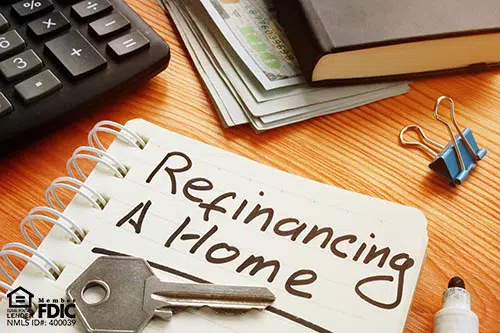As a homeowner, you may want to consider refinancing at some point during the life of your mortgage. Lower mortgage interest rates could have become available since you first took out the loan, and refinancing would reduce your payment. Or you may want a cash-out refinance to do some home remodeling. Before applying for a refinance loan, there are some things to consider to be sure this is the right path for you. Take a look at these key factors before deciding.
Know How Much Home Equity You Have Built
To refinance, you will need to have some equity in your home. Over the last several years, home values have risen in the U.S., so your home's value has likely increased. Most lenders will not lend you money for a refinance if you don't have equity built up on your home. Some government programs may be available to you if this is the case. Generally speaking, you will have a higher chance of being approved for a refinance loan if you have at least 20% equity in your home.
Know Your Current Credit Score
Your credit score significantly determines whether you will be approved for refinancing. It will also affect the interest rate that you receive.
You can get a free credit report by contacting one of the three credit reporting agencies. A free report from each of the companies is available every year. You'll have the opportunity to see the exact credit history lenders use when determining whether they approve you for a loan. If you have credit cards where you hold high balances, this will affect your credit score. Paying these down faster will help improve your credit score.
Determine Your Debt-to-Income Ratio
Your debt-to-income ratio compares all your monthly debt against your gross monthly income. The result determines your ability to repay debt. Lenders have their own requirements of what your debt-to-income ratio should be below. You may need to provide documentation such as tax returns and pay stubs to verify your gross income to a lender.
How the Interest Rate and Terms Work
When choosing a lender, it's easy to focus on finding the lowest interest rate. However, consider your reasons for refinancing the mortgage. If you wish to lower the monthly payments, the goal is to find the lowest interest rate, which will likely have a longer term. However, if your goal is to pay less interest and pay down the loan as soon as possible, you will want to focus on finding a shorter term.
Costs of Refinancing
In most cases, refinance of your loan will cost between 3% and 5% of the total loan amount. Some lenders will allow you to roll these costs into the new loan, which increases the principal. Other lenders will offer a higher interest rate on the loan to cover these costs.
Another cost associated with refinancing is points. In most cases, a point equals 1% of the loan amount and is used to lower the loan's interest rate. Points will be paid at the closing of your new loan. Be sure to review points with each lender.
Private Mortgage Insurance
If you have less than 20% equity in your home, your lender will require private mortgage insurance (PMI). If your home's value has decreased since your purchase, you might need to pay PMI. This might not be a concern if you have already been paying PMI. Your lender should be able to tell you whether you will need to pay PMI and how much the monthly cost will be.
Here's a calculator that can help you determine if refinancing your home is beneficial. Ready to refinance your home? Call our NASB refinance experts at 888-661-1982 today!




